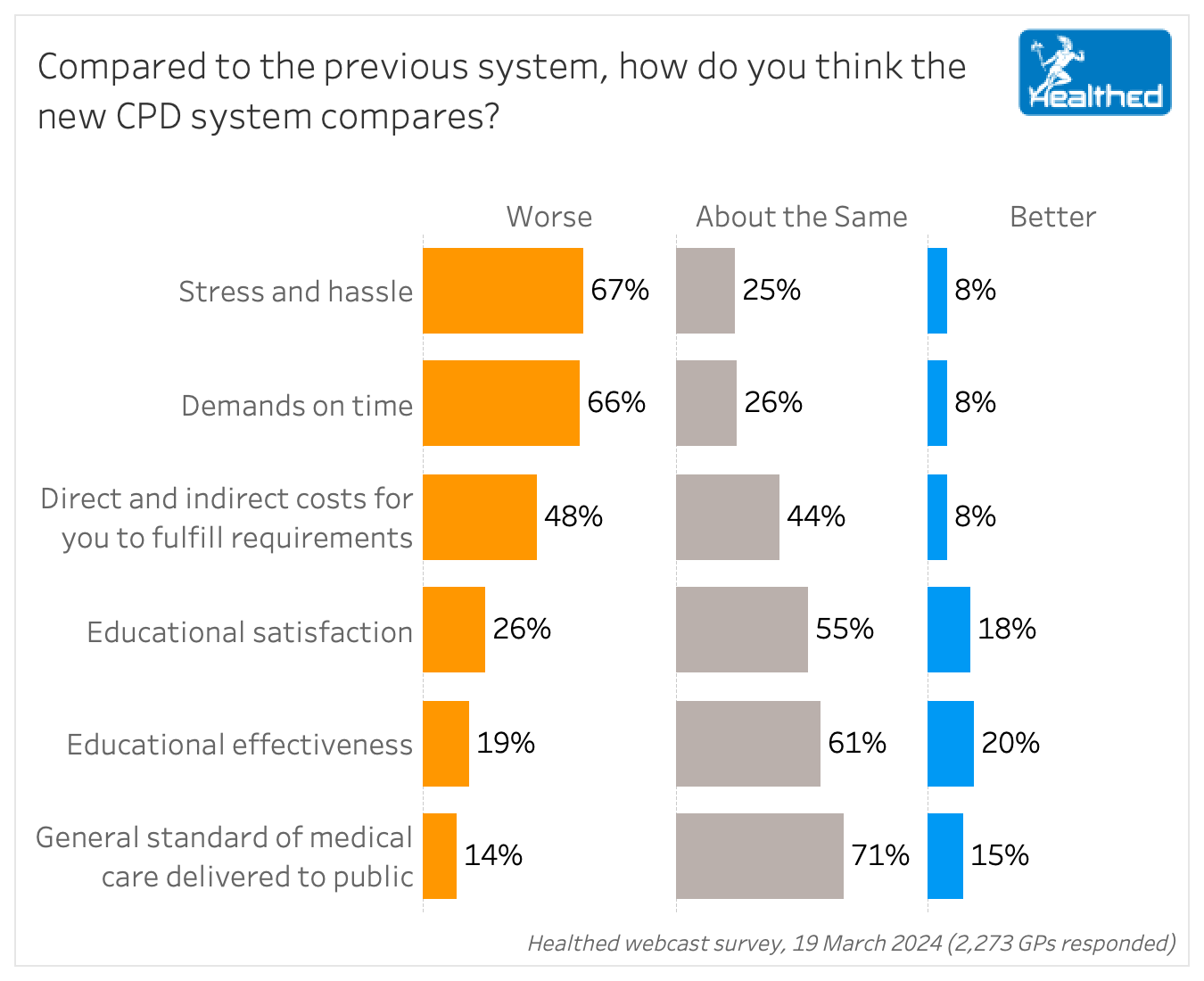Articles / New CPD system gets thumbs down

Two thirds of GPs in a national survey with over 2200 participants say the new CPD is more time-consuming and stressful than the previous system — but most say the educational effectiveness and standard of care for the public are about the same.

More than one year on, GPs describe a tedious, exhausting time-sink. The new system is “causing a lot of stress, robbing me of rest time,” one survey respondent wrote, while another said they had suffered “greatly increased anxiety worrying about achieving the points in the categories.”
“The previous system was fine and was less pressure on already stressed and time poor GPs with less remuneration than ever. Very frustrating, I would retire if I could financially,” said another surveyed GP.
Several surveyed GPs said they preferred the flexibility the triennium had offered, allowing for changes in personal circumstances and workload.
“I totally support CPD, but the current system is cumbersome and confusing – I prefer the 3-year option. People having maternity or sick leave seem disadvantaged now; a more flexible approach over 3 years is better.” – surveyed GP.
Medical Board of Australia Chair Dr Anne Tonkin said the Board doesn’t underestimate the pressure on GPs, nor do they want to make CPD more of a burden.
“We recognise that it is difficult for practitioners to find time to do extra things on top of seeing patients. We have members of our board who are GPs, and they tell us that,” Dr Tonkin told Healthed.
She acknowledged the changes may take some getting used to, but also wonders if part of the problem may be that GPs don’t realise how many typical practice activities can be claimed as CPD.
Examples include meetings where someone presents evidence on a topic, morbidity meetings, and peer conversations about ways to manage difficult cases.
“So we’re not asking them to do a whole lot more in most cases,” Dr Tonkin said. “All we’re asking people to do is document these activities.”
However 66% of surveyed GPs said logging these day-to-day clinical activities was “not at all easy.”
“It’s a nuisance to always be having to think about logging the activities and documenting outcomes of the things we have been routinely doing for years,” one GP explained.
“It’s very difficult to provide evidence for this and to have the time to document everyday clinical practice activities to a standard that if I were audited, I would have sufficient information to provide,” another said.
And when it comes to the general standard of patient care, 71% of GPs felt the two CPD systems were about the same.
While GPs remain sceptical that the new CPD will translate to improved outcomes, the Board has said they’ll be doing some reflecting of their own.
“We need to have a look at this over time and see whether there’s something else going on for GPs that makes it more difficult for them to embrace this form of CPD, but we certainly will be listening to people and taking all of their feedback on board,” Dr Tonkin said.
They will also review the CPD requirements — but not in a hurry.
“We don’t want to chop and change so that people don’t know what’s going on. But we will gather information and listen and learn and make changes as needed. We’ll probably give it at least a couple of years to bed down,” Dr Tonkin said.

RSV Prevention in Infants and Pregnant Women

STIs – Common and Tricky Cases

Role of Testosterone During Menopause - Evidence vs Hype

Vision and Driving Fitness: Key Insights for Health Practitioners
Yes
No
Listen to expert interviews.
Click to open in a new tab
Browse the latest articles from Healthed.
Notifications